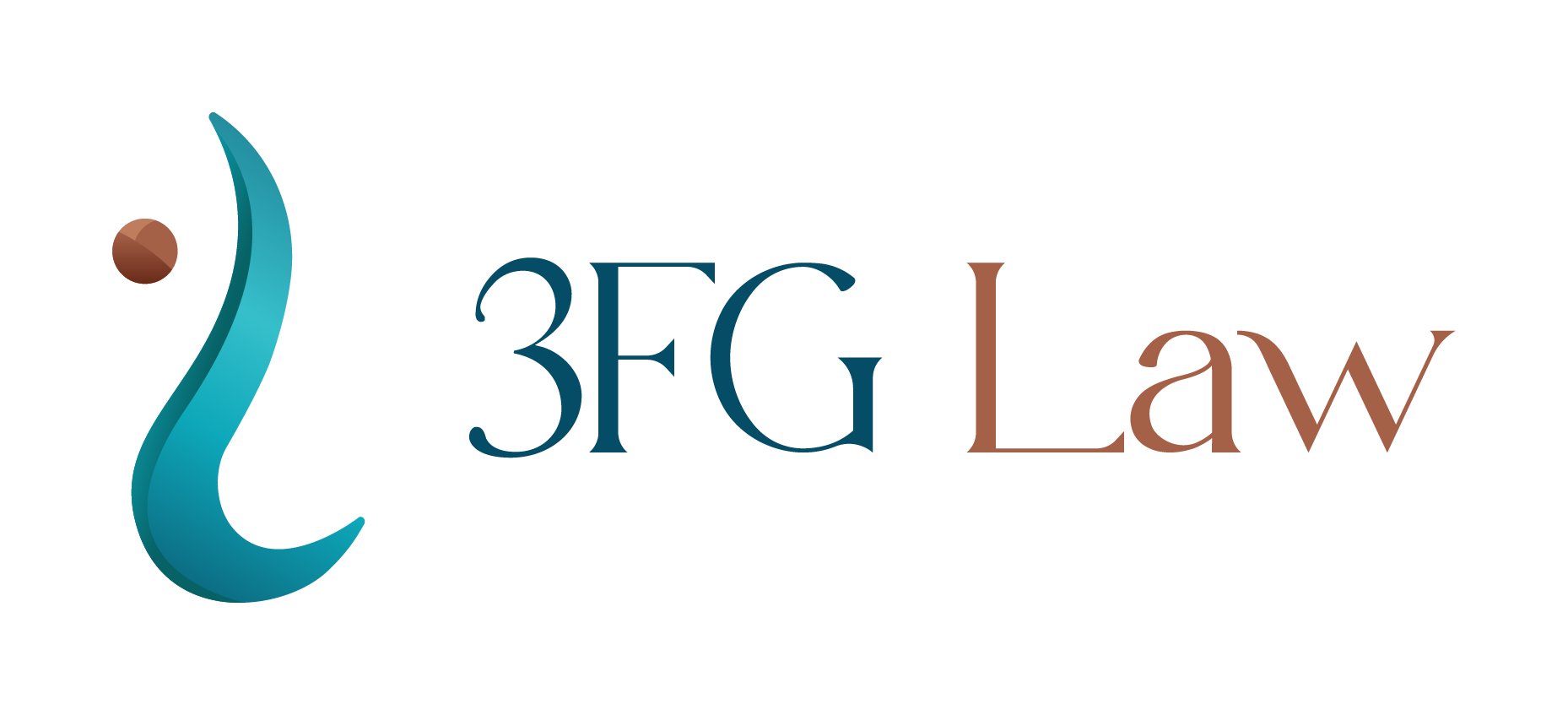Creating an estate plan is a significant milestone, and managing your finances effectively is essential for securing your future. However, the true power of these tools lies in their coordination. For families in Kapolei, ensuring that your estate plan and financial plan work together is the key to achieving your goals and protecting your loved ones. At 3FG Law, we help Kapolei residents build cohesive plans that integrate every aspect of their financial and estate planning needs.
What Happens When Estate and Financial Plans Aren’t Aligned?
While it may seem sufficient to address estate and financial planning as separate processes, the lack of coordination can lead to unintended consequences. For instance:
- Mismatched Beneficiary Designations: Your will might specify one heir, while outdated beneficiary designations on insurance policies or retirement accounts point to another.
- Asset Titling Conflicts: Improper titling of assets can derail your plan, bypassing a carefully crafted trust or forcing assets through probate unnecessarily.
- Tax Inefficiencies: Without coordination, your plans may miss opportunities to minimize taxes or protect assets for future generations.
These issues often arise because different professionals—financial advisors, CPAs, and attorneys—work in silos. Effective coordination ensures that all aspects of your planning align to achieve your goals.
Benefits of Coordinating Your Financial and Estate Plans
1. A Clear Roadmap for Your Loved Ones
When clients first work with an estate planning attorney, they are asked to create a comprehensive asset inventory. While time consuming, developing an asset inventory allows you to take stock of your current property, both real and personal. As a result, your estate planning attorney can coordinate your estate and financial plans using the inventory as a guide for what you own currently and what you want to pass onto your heirs. The clarity of a clear financial roadmap is essential not only for your loved ones but also for the professionals managing your estate once you pass away, reducing stress and confusion during times of transition.
2. Minimized Tax Liabilities
Coordinating with tax professionals ensures that your financial plan takes advantage of strategies to minimize estate, income, and capital gains taxes. This is particularly important in high-value markets like Kapolei, where property appreciation can result in significant tax burdens without proper planning.
3. Aligned Financial and Estate Goals
Whether you’re funding a child’s education, supporting a cause, or ensuring financial stability for a surviving spouse, your estate and financial plans should reflect the same priorities. This alignment ensures that your resources are used effectively to meet your goals.
Communication Is Key
As highlighted in a Forbes article, communication among advisors and with your family members is critical. Without clear communication, even the best-laid plans can falter. Consider these steps:
- Discuss Your Plans with Heirs and Agents: Preparing loved ones for their roles and your intentions reduces misunderstandings and disputes.
- Foster Advisor Collaboration: Regular meetings with your attorney, financial advisor, and CPA can ensure that all aspects of your plan remain aligned.
- Document Your Wishes: A memorandum of instructions can guide your fiduciaries, heirs, and advisors, providing clarity beyond the legal language of wills and trusts.
Also Read: What Do I Need to Do When a Loved One Dies?
Practical Steps to Achieve Coordination between Plans
1. Align Beneficiary Designations with Your Estate Plan
Retirement accounts, life insurance policies, and other accounts with beneficiary designations often bypass your will. Ensuring these designations align with your estate plan is essential.
2. Update Asset Titling
Your attorney can help retitle assets to ensure they align with your estate plan. For instance, Kapolei residents with family homes may want to transfer ownership into a trust to avoid probate and provide seamless management during incapacity.
3. Optimize Tax Strategies
Work with your CPA to integrate tax-efficient strategies, such as utilizing irrevocable trusts or gifting strategies, into both your financial and estate plans.
4. Periodic Reviews
Life changes—such as buying property, welcoming a new family member, or changes in Hawaii’s local laws—should prompt a review of your plans to ensure continued alignment.
The 3FG Law Approach to Holistic Financial and Estate Planning
At 3FG Law, we pride ourselves on creating cohesive estate plans that complement your financial strategy. We collaborate with your advisors to ensure every aspect of your plan—from asset titling to tax strategies—reflects your values and goals.
By taking a holistic approach, we help Kapolei families:
- Avoid unnecessary costs and complications.
- Protect their legacies for future generations.
- Gain peace of mind knowing their plans are robust and up-to-date.
Ready to Coordinate Your Estate and Financial Plans? Book a Call Today
Don’t leave your future to chance. If you live in Kapolei or the surrounding areas, 3FG Law is here to help you coordinate your estate and financial plans. Let us guide you through the process to ensure your legacy is protected and your wishes are honored. Book a call today to start building a plan that works for you and your family.
Key Takeaways
- Coordination ensures your financial and estate plans work together seamlessly, reducing risks and maximizing benefits.
- Communication among advisors and family members is crucial for avoiding disputes and misunderstandings.
- Periodic reviews keep your plans aligned with your goals and current laws.
- 3FG Law creates integrated plans for Kapolei families, ensuring their legacies are secure.
Also Read: Here’s Why You Need an Estate Plan
Why Regularly Reviewing Your Estate Plan is Vital for Honolulu Families
Key phrase: Honolulu estate planning attorney
Excerpt: Regularly reviewing your estate plan ensures it reflects your current wishes and life changes. From updating beneficiaries to adapting to Hawaii laws, keeping your plan current avoids legal disputes and protects your loved ones.
Your estate plan is more than a set of documents—it’s a living reflection of your wishes, your family’s needs, and your life circumstances. For residents of Honolulu, ensuring that your estate plan remains up-to-date is critical for avoiding unnecessary legal complications, minimizing stress for your loved ones, and protecting your legacy. Regular reviews ensure that your plan adapts to life changes and remains aligned with your goals.
When Should You Review Your Estate Plan?
According to CNBC’s article it’s smart to review your estate plan every few years or whenever a significant life event occurs. Key triggers for a review include:
- Marriage or Divorce: Changes in your marital status often necessitate updates to ensure your plan reflects your current wishes.
- Birth or Adoption of a Child: A new addition to your family may require naming guardians or revising inheritance plans.
- Death of a Loved One: If a named beneficiary, executor, or trustee passes away, their role in your plan needs to be reassessed.
- Relocation: Moving to Hawaii or another state can mean different estate laws that may affect your documents.
- Significant Financial Changes: Inheritance, buying a home, or other major financial events might shift how your assets should be distributed.
Also Read: Communication is Key in Generational Estate Planning
Which Parts of Your Estate Plan Should Be Reviewed?
1. Beneficiary Designations
Assets like life insurance policies, retirement accounts, and bank accounts often have designated beneficiaries. These designations override your will, so they must be updated to align with your current wishes. If no beneficiary is named or a named beneficiary has passed away, these assets may go through probate unnecessarily.
2. Roles of Key Decision-Makers
Your estate plan likely names individuals in critical roles such as executors, trustees, or agents under powers of attorney. Over time, these individuals may no longer be the best choice to fulfill these responsibilities. For example:
- Executor: Ensure the person you’ve chosen is still willing and able to handle the complexities of settling your estate.
- Trustee: Confirm that your chosen trustee can still manage and distribute assets as you intended.
- Guardian for Minor Children: If a chosen guardian is no longer able to serve, updating this designation is essential to avoid court intervention.
3. Contingent Beneficiaries and Backup Decision-Makers
If your primary choices for beneficiaries or key roles are no longer available, your plan should include backups. For example, naming contingent beneficiaries ensures your wishes are honored even if your primary beneficiary predeceases you.
4. Powers of Attorney
Ensure your financial and medical powers of attorney still align with your needs and that the individuals you’ve chosen to act on your behalf remain appropriate for the role.
Why It’s Essential to Review Your Estate Plan Regularly
Avoid Probate and Legal Disputes
Neglected estate plans can lead to assets going through probate or disputes among heirs. For example, failure to name a new beneficiary on an IRA or a life insurance policy can result in the asset being distributed according to state law rather than your wishes.
Protect Loved Ones
Your plan should always reflect your current family dynamics. Whether it’s safeguarding assets for children, ensuring your spouse is provided for, or leaving a legacy for grandchildren, keeping your plan up-to-date prevents unintended outcomes.
Adapt to Changing Laws
Hawaii state laws and federal tax laws can change over time, potentially affecting your estate plan. Regular reviews ensure that your plan remains compliant and tax-efficient.
3FG Law Can Help Honolulu Families Stay Prepared
At 3FG Law, we provide a welcoming environment to discuss your estate planning needs without stress or overwhelm. We work with Honolulu families to ensure their estate plans remain current and functional, no matter what changes life brings. Whether you’re revising beneficiary designations, updating trustees, or addressing a recent life event, we’re here to guide you through every step.
Also Read: Estate Planning for Women in Oahu: How to Take Control of Your Financial Legacy
Take Control of Your Estate Plan Today
Don’t wait for a life event or legal complication to force changes to your estate plan. Regular reviews ensure your plan stays aligned with your goals, protects your loved ones, and meets Honolulu’s legal requirements.
Book a call with 3FG Law today to schedule your estate plan review. Let’s keep your legacy on track for the future you envision.
Key Takeaways
- Regular estate plan reviews are essential for aligning your plan with life changes and current laws.
- Updating beneficiaries, decision-makers, and key documents prevents probate and legal disputes.
- 3FG Law helps Honolulu families keep their plans functional, effective, and relevant.




